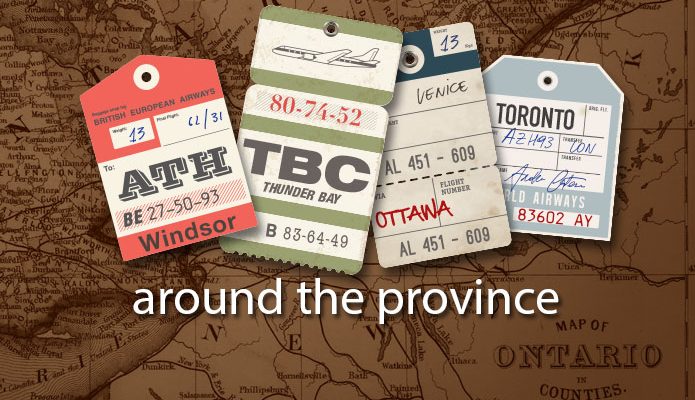
Have you heard? Spreading the word about Misinformation March
By: Victoria Levang
Misinformation is everywhere today, it seems, and it’s getting harder and harder to tell fact from fiction. With the introduction of new technologies like A.I., the need for increased awareness and knowledge about how to combat and identify misinformation seems to be ever-increasing. For example, A.I. Chatbots are known to make up information when prompted. If these responses are not thoroughly fact-checked, these ad-libs can be taken as fact and thus potentially used to perpetuate misinformation.
Libraries are key to combating misinformation, particularly in postsecondary schools. Students can often find difficulty in discerning credible sources from the not-so-credible. For example, they may turn to Google for their research needs, taking any website they find at face-value, rather than evaluating whether this source should be trusted.
As library professionals, we are all providers of information, and experts in information literacy. It therefore seems natural that library staff should spearhead efforts and be a resource on the subject for patrons in this changing world.
We have recognized this ever-growing need in our work at the St. Clair College library in Windsor, Ontario. Our student patrons often struggle to find credible sources for papers and research in their schoolwork. But we also recognize that this need extends further. Many people can fall victim to misinformation; for example, conspiracy theories like QAnon can spread quickly over short amounts of time. We decided to do something about this growing problem.
We came up with the idea for Misinformation March in February 2022. Utilizing my own penchant for library displays and programming, and Kimberly’s background in journalism, we created an initiative designed to dispel misinformation and help our patrons engage with information and media literacy strategies. Our mission was to arm students with tools to better identify and combat misinformation through interactive games, displays, trivia events and pop-ups.
We created several events and activities as part of the Misinformation March initiative. This included Pop-Up library events throughout the month, and a Misinformation Trivia Night. We also held a raffle for a campus bookstore gift card, a selfie station, and created interactive games like “a Game of Headlines”, both virtually via the libguide and in-person. We also offered downloadables, a word search and colouring page to engage our students.
This year, we spoke of our achievements at the 2024 OLA Super conference and the OLITA Digital Odyssey, encouraging professionals from all types of libraries -public, school, academic, or special – to adopt the initiative and hold their own Misinformation March events.
Since its inception, Misinformation March has grown and will continue to expand in coming years. We invite anyone interested in putting on their own version of the event to do so.
We created the Misinformation March libguide as our “hub” for this initiative, including library collections, other organizations, promotional materials such as button designs, pamphlets, handouts, colouring pages and more. The guide is also accessible via the QR code below If you would like to learn more about our initiative, please feel free to visit it and contact us!

Victoria “Tori” Levang received her Master of Library and Information Science from Western University in June 2019. She currently works as a Library Technician at the St. Clair College Library Resource Centre. She is passionate about creating educational, impactful and engaging displays in librarianship, and about the impact of Misinformation and disinformation. She believes in the importance of education on this issue, particularly in academia.


